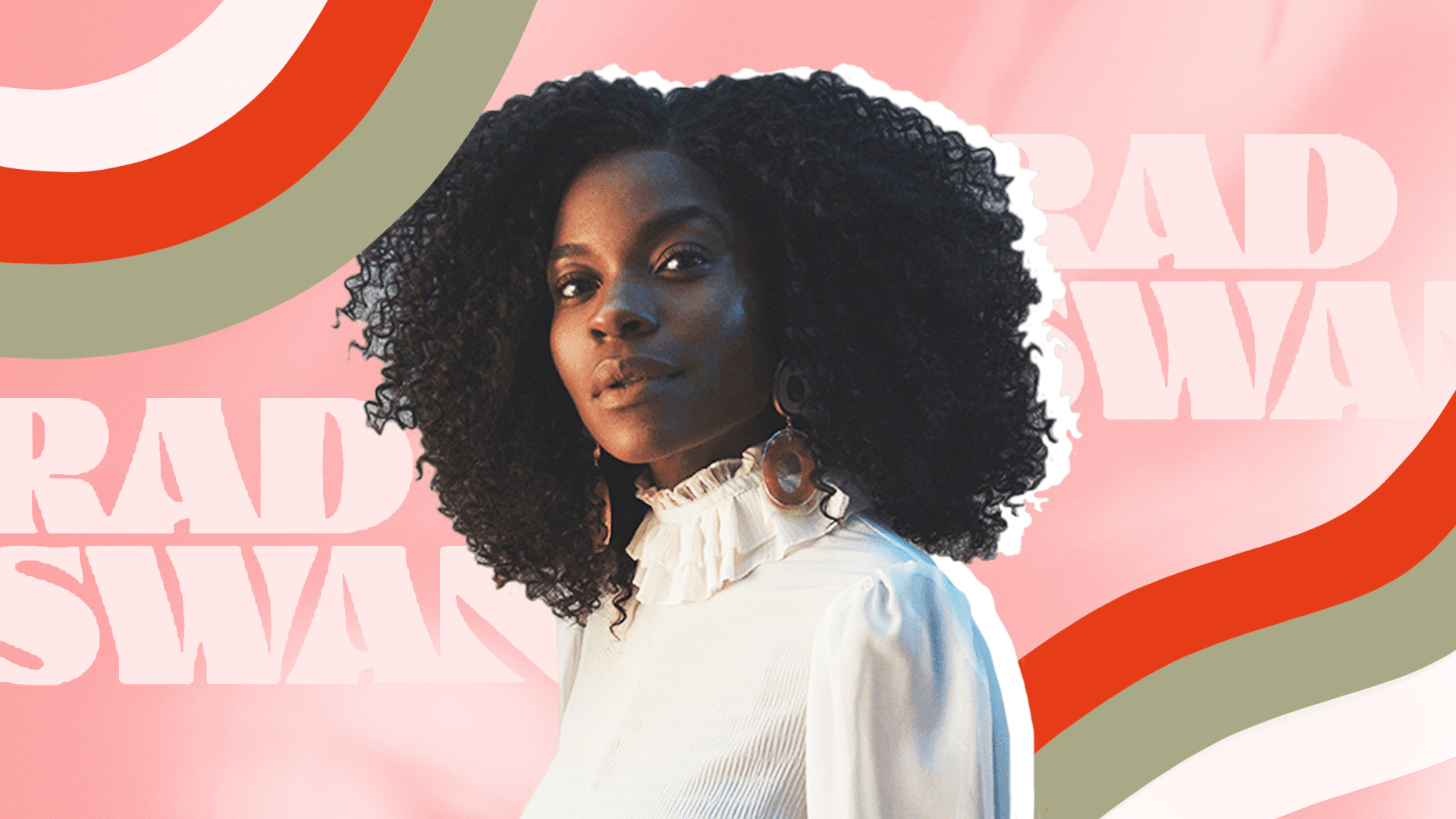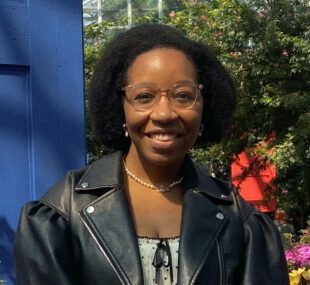Freddie Harrel doesn’t just want to disrupt the $7 billion Black hair extension market, she wants to dominate it entirely. The influencer-turned-hair entrepreneur is well on her way to doing just that with her direct-to-consumer synthetic hair brand, RadSwan — which has already been dubbed “the Glossier of the Black hair market.” Her recyclable, multi-textured wigs — called RadShapes — are designed to meet the needs of women across the global African Diaspora and offer a more accessible and ethical alternative to human hair extensions. But wigs and extensions aside, Harrel is building more than just a brand with RadSwan, but an empowering platform for women of color centered on celebrating Blackness through hair and encouraging self-expression.
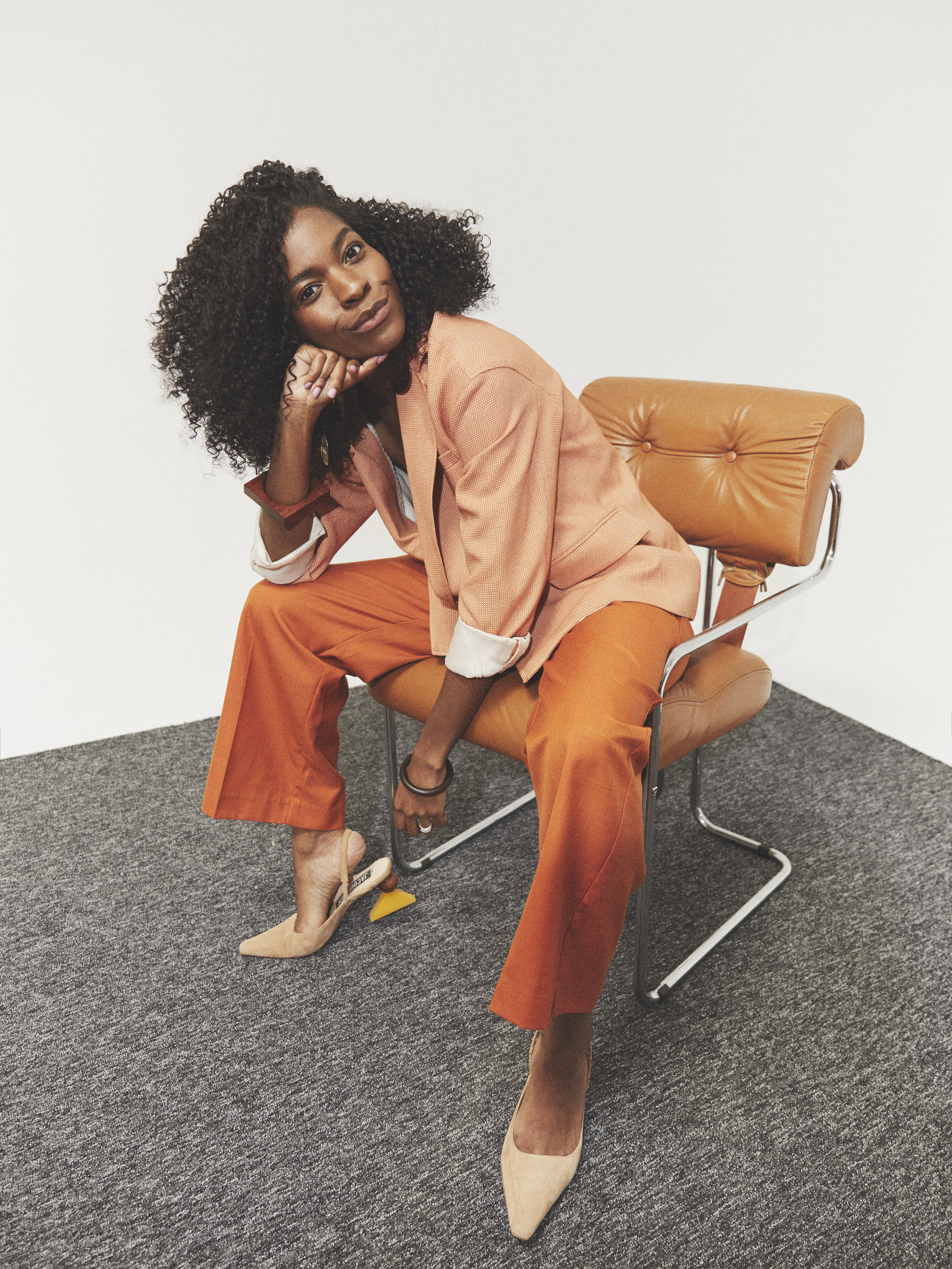
Here, The Tease talks to Harrel about evolving her previous hair brand Big Hair No Care into RadSwan, the importance of Black women to her business, and if sustainability has a place in the Black haircare market.
The Tease: Tell me about your own personal hair journey. What was your relationship with your hair growing up and how has it evolved?
Freddie Harrel: My hair! The journey began from an early age. I couldn’t keep up with my schoolmates’ wallets when it came to jumping into the latest fashion trends, but I could reinvent myself, my silhouette, and my whole presence every month when I would take out my braids and switch hairstyles. I loved that it intrigued everyone. They had all sorts of questions and I had all the imagination to feed their preconceived narrative that people like me were aliens living alien lives outside of school. When they would rock the latest trainers or puffa jacket, you would catch me with different braids or cornrows every month —a different length, a different colour, a different volume. That’s what we’d do. It seemed like we were made of this current, in constant motion, a fluidity you couldn’t contain despite a common ambition we had, as immigrants, to keep a low profile whilst having a crack at the ladder.
Hair is where you get to be loud, where you can express your multiplicity — I don’t think I’d know so much about myself if it wasn’t for this outlet I was given very early on. Black hair is culture, it’s alway been the safest and boldest form of self-expression we’ve resorted to. It’s the magic trick we brought to school, the threads of our lineage, it’s Sundays spent kneeled down, or in someone else’s crotch, doing each other’s hair, whilst chatting for hours. It’s sisterhood, it’s therapy, it’s community. RadSwan started from that, and from my inability to do hair. I’m a shapeshifter but I have fairly poor hair skills. When I stopped chemically straightening my hair, I fell in love with the ringlets from my childhood I was being reacquainted with.
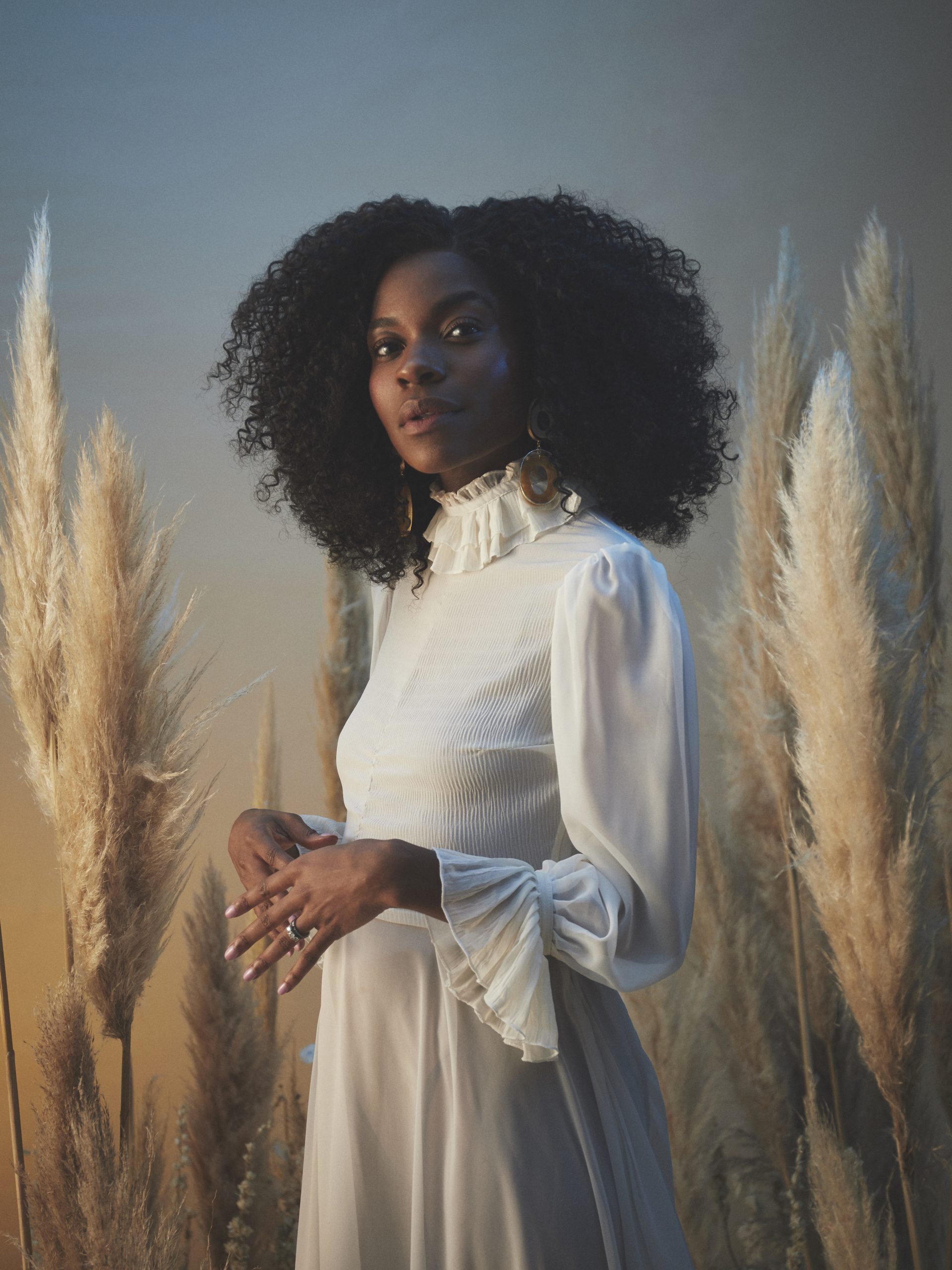
You launched your own line of ethical afro hair extensions called Big Hair No Care in 2017 which later evolved into the RadSwan that we know today. What first sparked your entry in the hair business and has your aim always been to provide a more ethical and sustainable alternative to natural human hair?
Harrel: The Black hair market, despite serving the highest beauty spender and being worth billions, is a constant source of frustration for most of us. I wanted hair that would mimic my afro, hair that I could put in myself without having to watch hours of tutorials or going to the salon, hair that I could easily take out to look after my own instead of having it sewn-on for weeks. Hair that I wouldn’t have to care for or spend too much money on as this would be reserved for my homegrown beautiful hair. I also no longer wanted the human hair kind. I was grossed out by the reports I’d hear about women being abused in the sourcing process, but I didn’t want to compromise with the cheap synthetic options I’d have to buy from sticky-shelved shops where I was stared at and followed around. I couldn’t find this hair, my dream shapeshifting kit, but I found this woman online, a hair supplier. I sent her photos of me, explained what I was after and together we custom created these clip-ins and wigs for me. I didn’t know then that most of us had poor hair skills, nor did I know that a lot of us had always felt like the awkward Black girl, the odd one out, no matter the space. It’s rocking my newly designed hair extensions online, as a fashion blogger, that opened my world to my tribe and to what I can only now describe as my life purpose: RadSwan.
Big Hair No Care was born in 2017, as a side hustle at first, after people kept asking me about my hair. A few pop-ups later, in London, Paris, and New York, I realized that hair was just the rallying point, that we were this huge collective of misfits and shapeshifters, these avid self-explorers compelled to find ways to hone, express, and celebrate their boundless fluidity. We were a community first, multiple people wrapped into single individuals, with heads full of aspirations and untold stories to explore, and we had to reclaim our narrative around shapeshifting, something that we’d all been doing all our lives but that our own community and others would often see as inauthenticity, or insecurities. The poor experience attached to the multi-billion dollar Black hair market doesn’t help, and it was about time we’d upgrade and dignifty it, and build it with the input of its audience, and the care of our planet in mind. It became such an evidence, so supported by my community and later on by our amazing investors, Big Hair No Care became RadSwan.
How did you land on the brand name, RadSwan and what does it mean to you?
Harrel: I spent so much time talking to Black women and this constant dialogue with our future customers became so important. They even helped decide the name RadSwan…the RadSwan is a Shapeshifter. RadSwan is a hair and lifestyle brand that is dedicated to providing premium synthetic wigs for Black women. Taking back the narrative, we are creating a revolution for Black hair —hair that is made by Black women, for Black women.
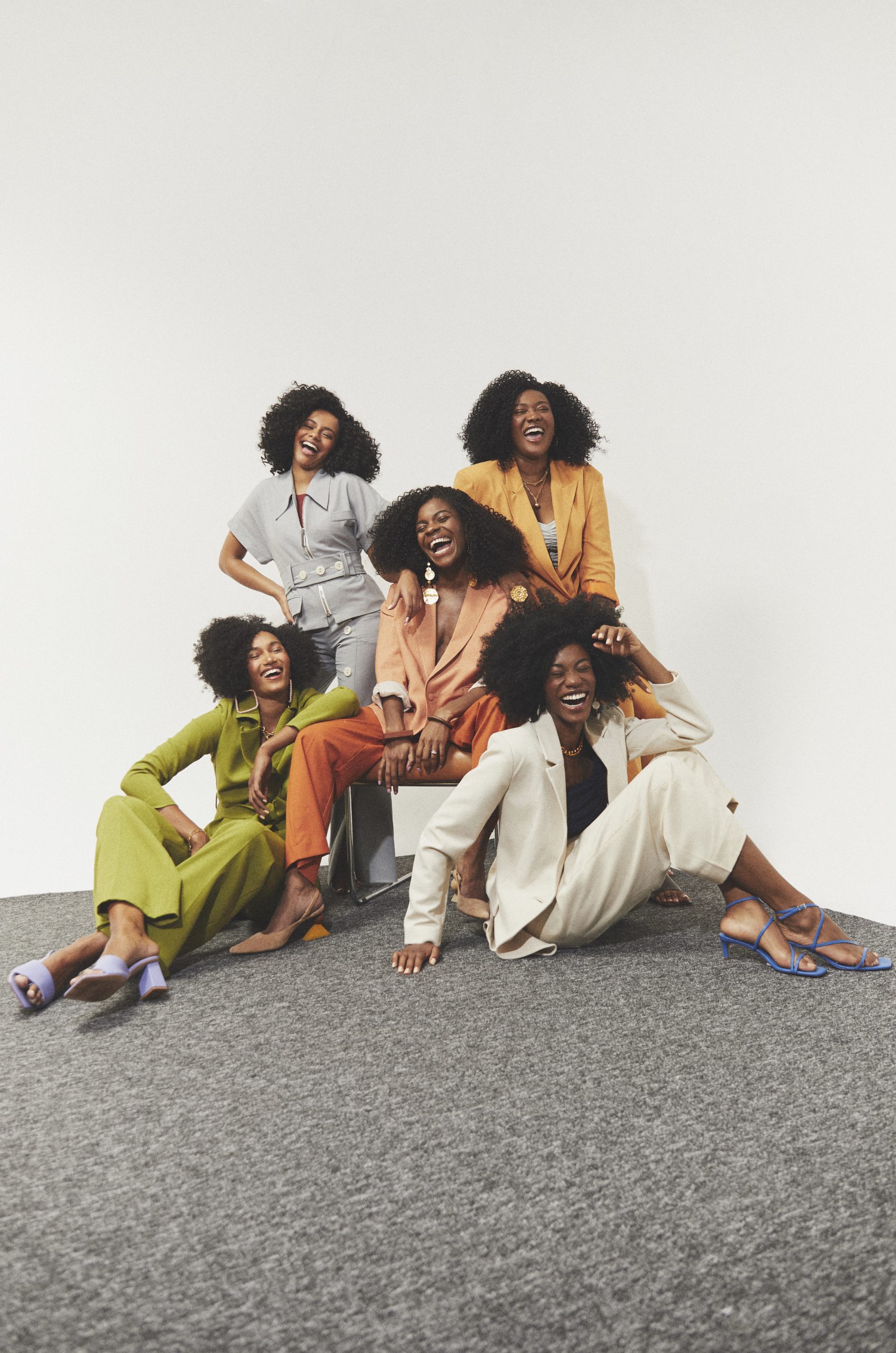
RadSwan has become more than just a hair company, but really a community for women of color. In fact, you describe the brand as being an “ode to Black women.” Why was it important for you to have Black women at the center of your business?
Harrel: “It is so important and the core of my business. The brand was built and is an ode to Black women. Can we have this conversation about how we’ve always changed our hair? Why is it that once we are in our 20’s and 30’s, all of a sudden, you loving yourself means that you have to just wear the same hair? The versatility is part of us, like being shapeshifters is part of our making! I’m tired of always trying to explain why I switch hairstyles or claim it as a protective styling —we shouldn’t have to justify it, we should be able to do it. This is the reason why our shapes don’t have names. It plays to the idea that you’re trying to be someone else — you’re a shapeshifter, an artist, a muse! We are fluid beings that are constantly expressing ourselves. I’ve upgraded the quality for us. From even the way our website is built, we want to dignify the experience with Black women at the center.
Is it possible to build a more sustainable future in the Black haircare market? In your opinion, what is it going to take from brands?
Harrel: It’s hard because hair is such a strong means of self-expression for us from a very young age. As immigrants and minorities, we are always told, roll with the punches, keep your head down, blend in! But actually, through our hair, we just get this unique tool that all of us use in our very own way, right? So, when it comes to what sort of hair people should wear, it is so deeply personal. But, human hair by its very nature is not sustainable. There are so many questions as there are no standards in place. Whose hair is this? How many heads? How was it sourced? I do think that, as more and more white women are wearing human hair extensions, this will lead to further regulation of the market, but until then? Who knows!
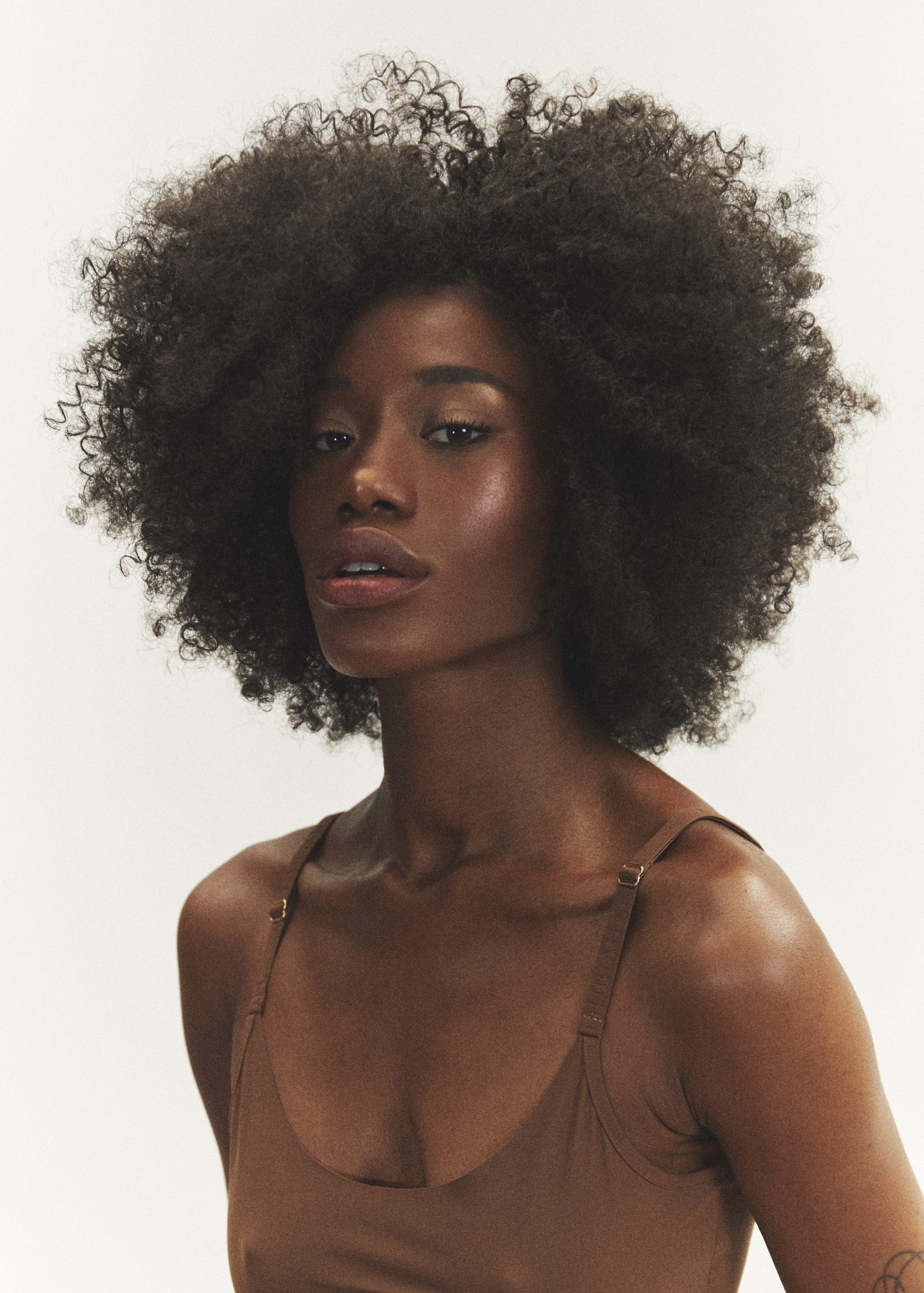
What can we expect in the future from RadSwan?
Harrel: Through RadSwan, I wish to upgrade and dignify the whole synthetic hair experience. Artificial hair has such a negative stigma surrounding it for young Black women, not so much for white women. Why is this? I just feel like if we didn’t have to buy it where we are not treated well, if we didn’t have this product that looks so shiny and fake, then there wouldn’t be all of this stigma around it. At the moment, the economics of this market is huge volume and low margin. We are the first to introduce premium and then there’s still so much that we can do. I would love to see Africa more involved in the production for instance. That’s definitely the long term plan with RadSwan, is to own more of the supply chain and make sure that more Black people make money from it.
Interview has been edited for both length and clarity.
To learn more about RadSwan, be sure to follow @radswan on Instagram or visit their official website.
